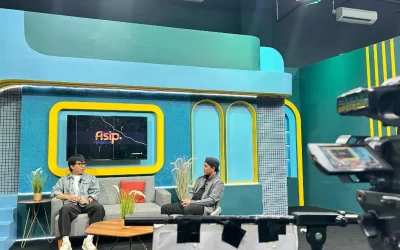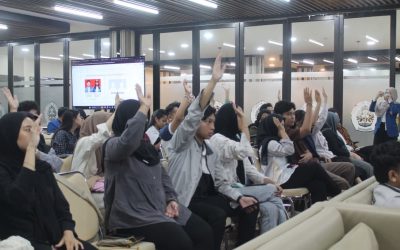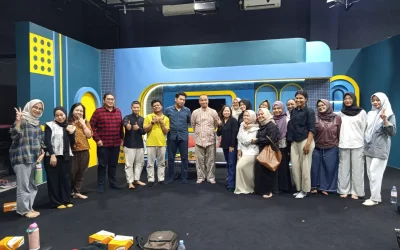Semarang, 11 September 2025 – The Faculty of Social and Political Sciences (FISIP), Diponegoro University, held an Inaugural Lecture themed “Disinformation Studies as an Emerging Field of Knowledge” featuring two experts from Universidade Federal Fluminense, Brazil, namely Prof. Afonso Albuquerque and Prof. Thaiane Oliveira.
The event, held at the Student Center Room (PKM Room) of FISIP UNDIP, served as an important forum to discuss the urgency of disinformation as an increasingly complex global phenomenon. The two Brazilian academics emphasized that disinformation is not merely an issue of “fake news,” but a structural phenomenon involving political strategies, economic interests, and technological developments that can undermine democracy and public institutions.

International Collaboration for Academic Resilience
In his remarks, Dean of FISIP UNDIP, Dr. Teguh Yuwono, M.Pol.Admin., stressed the importance of sustainable international academic cooperation. FISIP UNDIP is committed not only to presenting critical discourse on global challenges such as disinformation, but also to strengthening collaboration with international partner universities. “This cooperation with Universidade Federal Fluminense is expected to build stronger academic capacity and produce tangible solutions to face threats to democracy and national sovereignty,” he said.
Brazilian Experts Highlight Global South Perspectives
Prof. Afonso Albuquerque explained that disinformation is a far more complex phenomenon than just fake news. “Disinformation is more than just ‘fake news.’ It is a systemic phenomenon that requires integrated and interdisciplinary approaches to be addressed effectively,” he emphasized.
Meanwhile, Prof. Thaiane Oliveira highlighted the importance of epistemic sovereignty amid the global wave of disinformation. “In times of disinformation, the Global South must assert epistemic sovereignty by producing knowledge that reflects our own realities and challenges. Academic exchanges such as between Brazil and Indonesia are essential to strengthen democratic resilience,” she explained.
Strengthening Academic Networks
The event’s moderator, Nurist S. Ulfa, Ph.D., conveyed that this forum not only enriched academic insights but also strengthened international networks.
“This cross-country discussion serves as an important foundation in building joint strategies to face the wave of disinformation that threatens democracy and social cohesion,” she said.
By presenting perspectives from Brazil and Indonesia, this event is part of the implementation of the role of public universities as the frontline in building information resilience. FISIP UNDIP hopes this initiative will continue into sustainable research collaborations in the future.






0 Comments